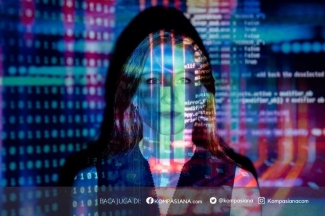Cybercrime is an ongoing threat which develops rapidly in recent years. This is due to the use of the internet which has grown in importance as it has become central to commerce, entertainment, and government. The internet itself is a global network which providing a variety of information and communications. The problem is this network connects the world without any clear boundaries, therefore the criminals can make this easiness, a pathway to act their crimes.
Cybercrime means a criminal activity that either targets or hosts use a computer, a computer network or networked device to committed this act. Most of the cybercriminals want to make a profit, but some of them are carried out by political or personal reasons. They can be organized, use advanced techniques and are highly technically skilled, but they also can be amateur, novice hackers who learn their crimes watching tutorials provided by Youtube.
There are different types of cybercrime and each of them has its countermeasures. Here are some specific examples of cybercrime: identity fraud, card payment theft, sale of corporate data, cyberextortion, ransomware attacks, crypto jacking, and cyberespionage, even terrorists collaborate on the internet, moving terrorist activities and crimes into cyberspace. Even though it looks highly sophisticated, the target as a computer's user has a big part in preventing cybercrime to happen.
Cybercriminals that targets computer often involves viruses and other types of malware to damage devices or stop them working, delete or steal data, spread illegal media, etc. While there is a wide range of cybercrimes out there, it's a good idea for us to recognize them. There is some basic precaution which can be the first step to protect ourselves.
First, we must keep the computer's software updated, especially the operating systems and security one. It's better to install an antivirus that provides real-time protection against existing and emerging malware including ransomware and viruses to help protects our private and financial information online, we can purchase it to make sure its trustability and professionality. After we installed the software, we must maintain it up to date, if possible, make the update takes place automatically.
Second, we should manage our passwords. We should never repeat our passwords on different accounts because when one of them is hacked, all of our accounts online will be vulnerable. It is recommended to change our passwords regularly or make them complex with the combination of at least 10 letters, numbers, and symbols. We can use a reputable password manager to generate strong passwords randomly and make this easier.
Third, we must be careful in using public Wi-Fi. When using it, anyone nearby who is connected to the same network can listen in on what our computer is sending and receiving across the internet. To handle it, we can use free browsers like Tor to encrypt our traffic and camouflage what we're doing online. We can also use a virtual private network (VPN) to encrypt all our internet traffic to make it more difficult for hackers, or even casual users, to spy on you. There is a wide range of free and paid VPN options.
Fourth, we should not open links in spam emails or untrusted websites, including download files from untrusted sources. That is the classic way to make our computers get infected by malware. When free illegal cracked software seems tempting, our computers are in danger from many forms of cybercrime, so make sure to do something in a legal way even for your entertainment.
Last, we should not give out personal information online, even on our social media unless it is secure. We can enable multi-factor authentication, an extra step where websites are requiring users not only to provide a strong password but also to type in a separate code from an app, text, or email message, particularly for crucial logins like bank and credit card accounts which makes it much harder for a hacker to break in. We also can encrypt our smartphone's and computer's data, so hacker just going to get gibberish files, rather than our data for instance.
Finally, when we talked about the internet, no person, organization or computer can ever be 100% secure on it. Cybercriminals with the patience, money, and skill can break into even the most protected systems in the Pentagon. But by taking these simple steps, we can make it less likely to be a victim, and in the process help raise the overall level of cyber hygiene and security awareness around, making everyone safer both online and off.
Follow Instagram @kompasianacom juga Tiktok @kompasiana biar nggak ketinggalan event seru komunitas dan tips dapat cuan dari Kompasiana
Baca juga cerita inspiratif langsung dari smartphone kamu dengan bergabung di WhatsApp Channel Kompasiana di SINI
